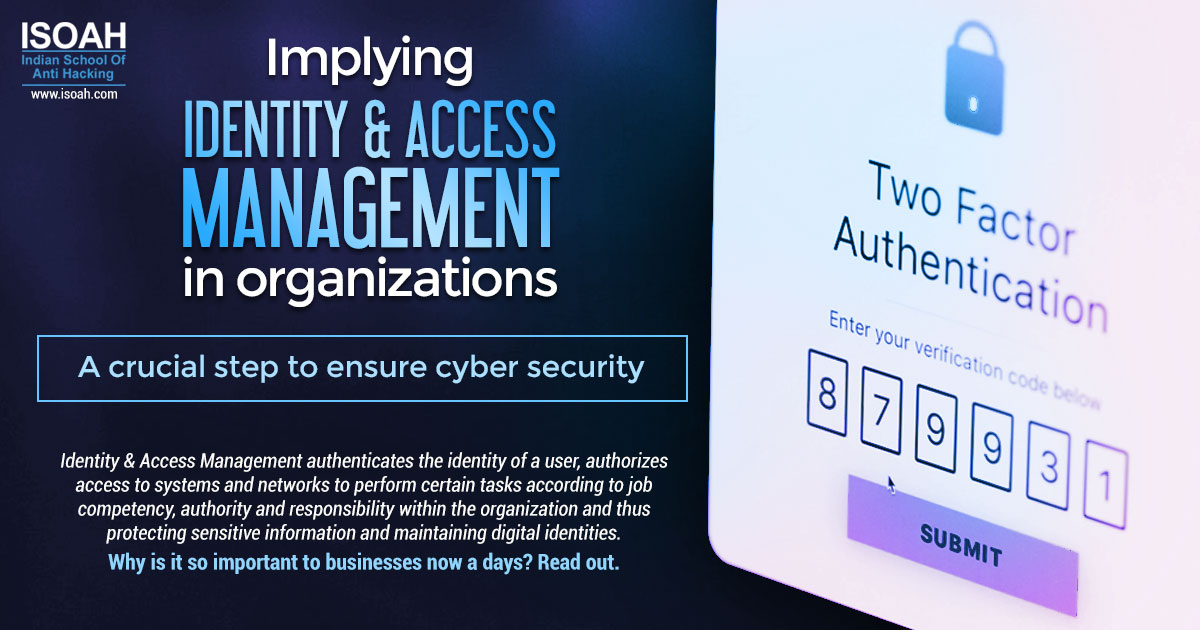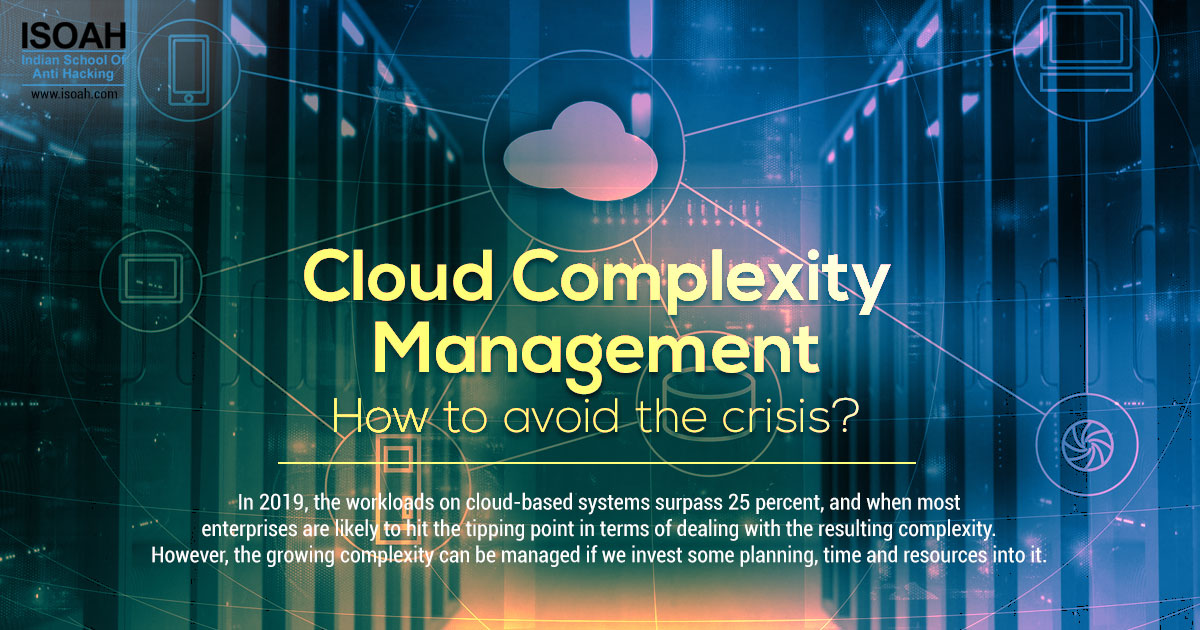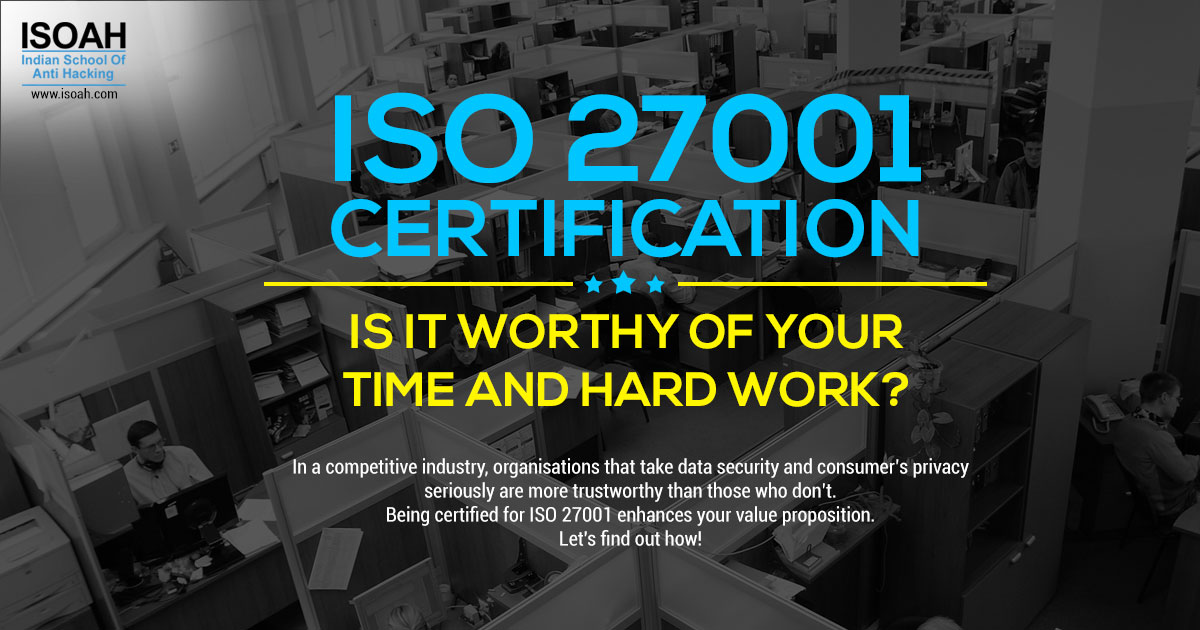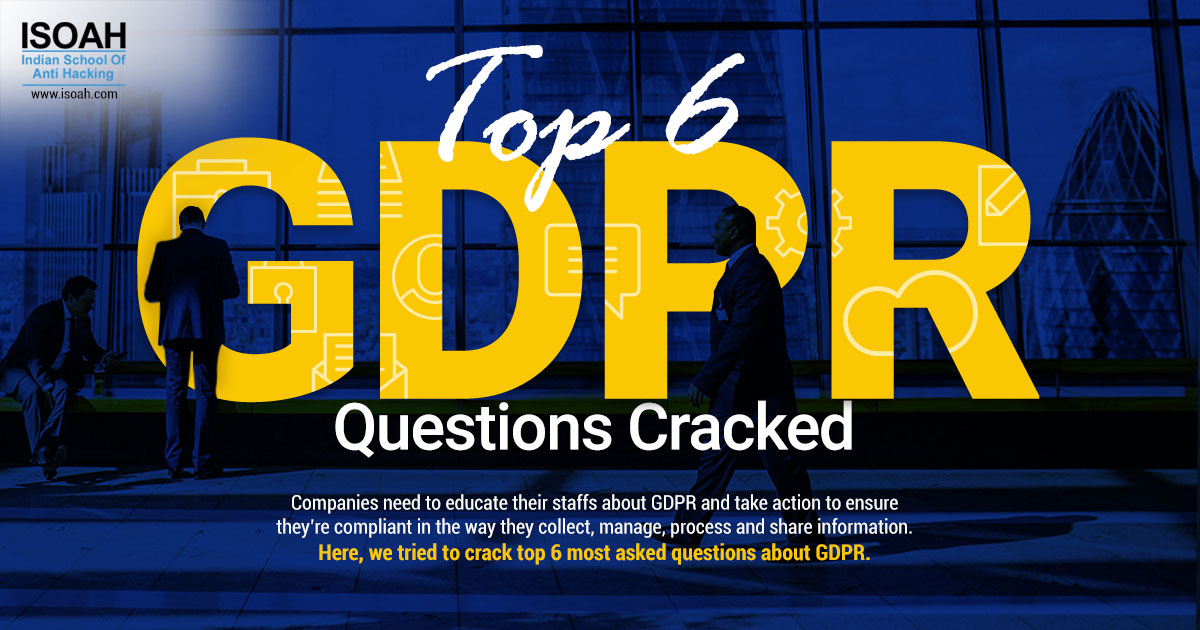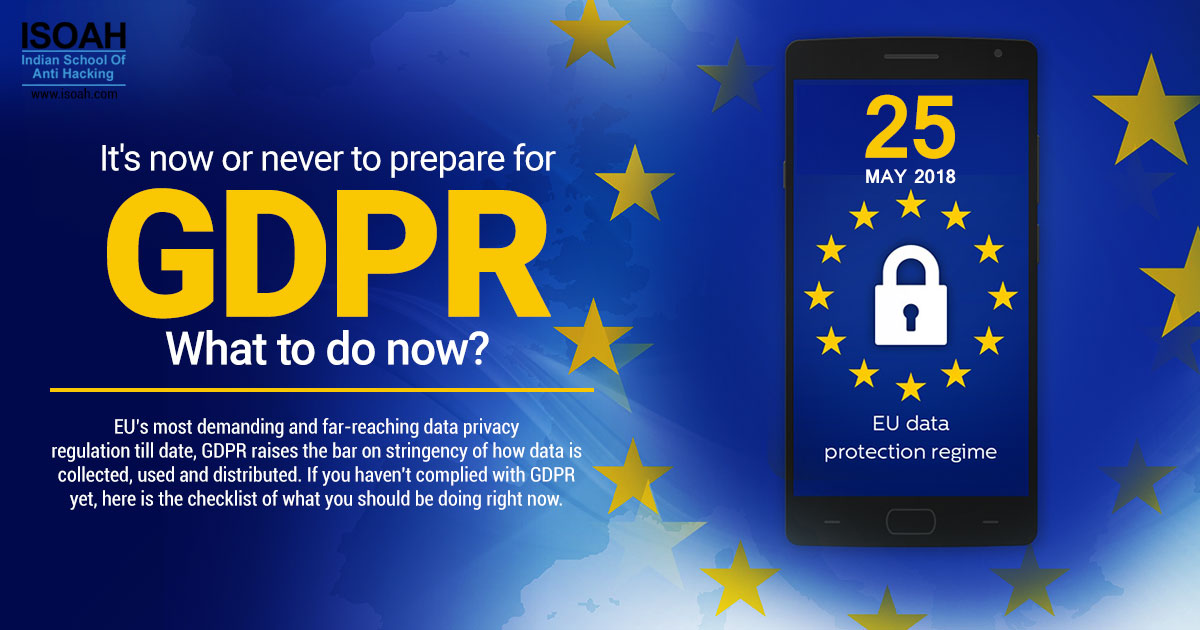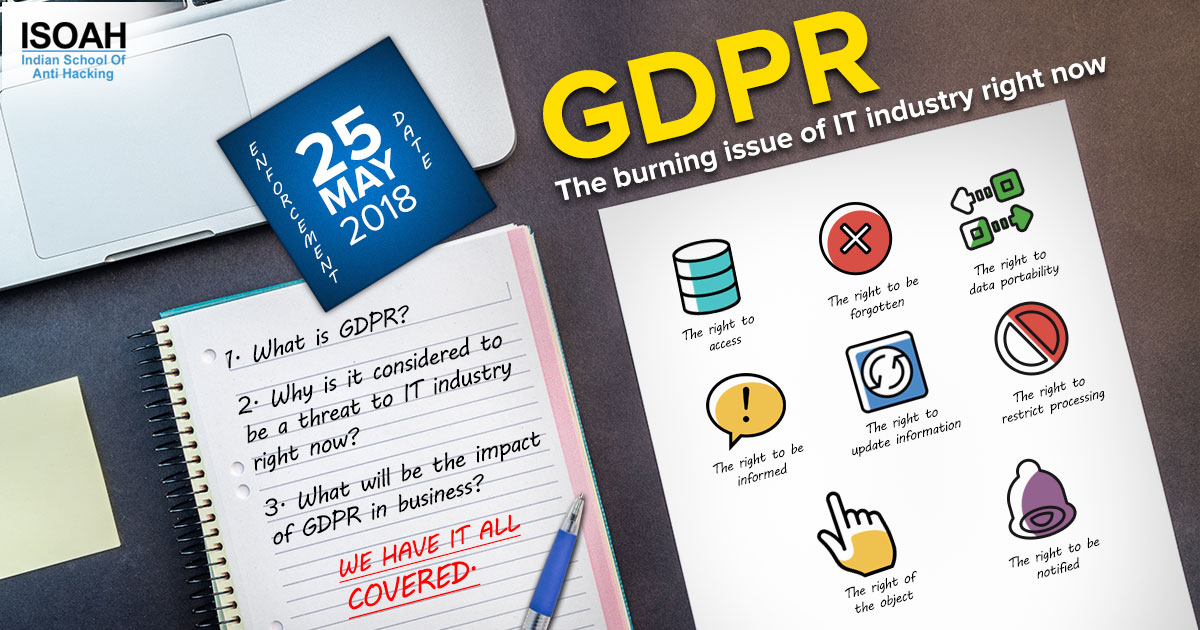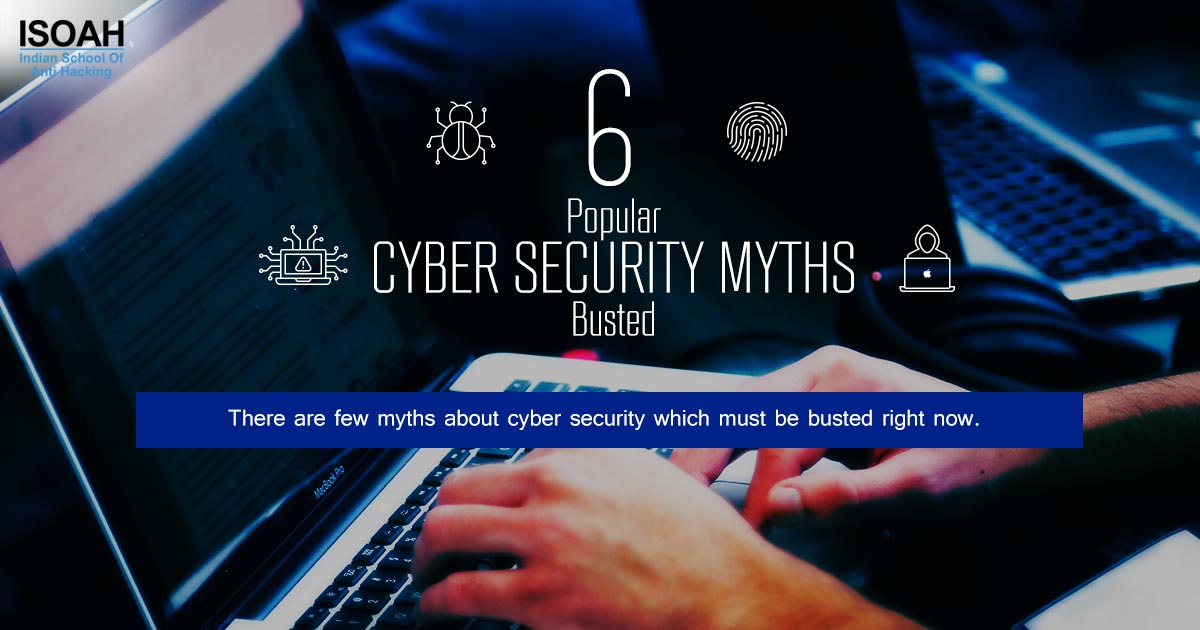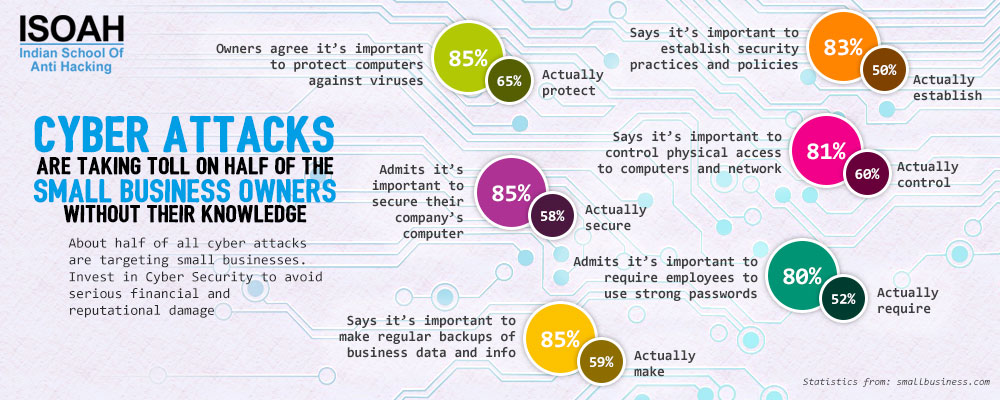How GDPR Helps You Win Customer Trust and Boost Sales: A Step-by-Step Guide for Businesses
Article: data protection and security, GDPR
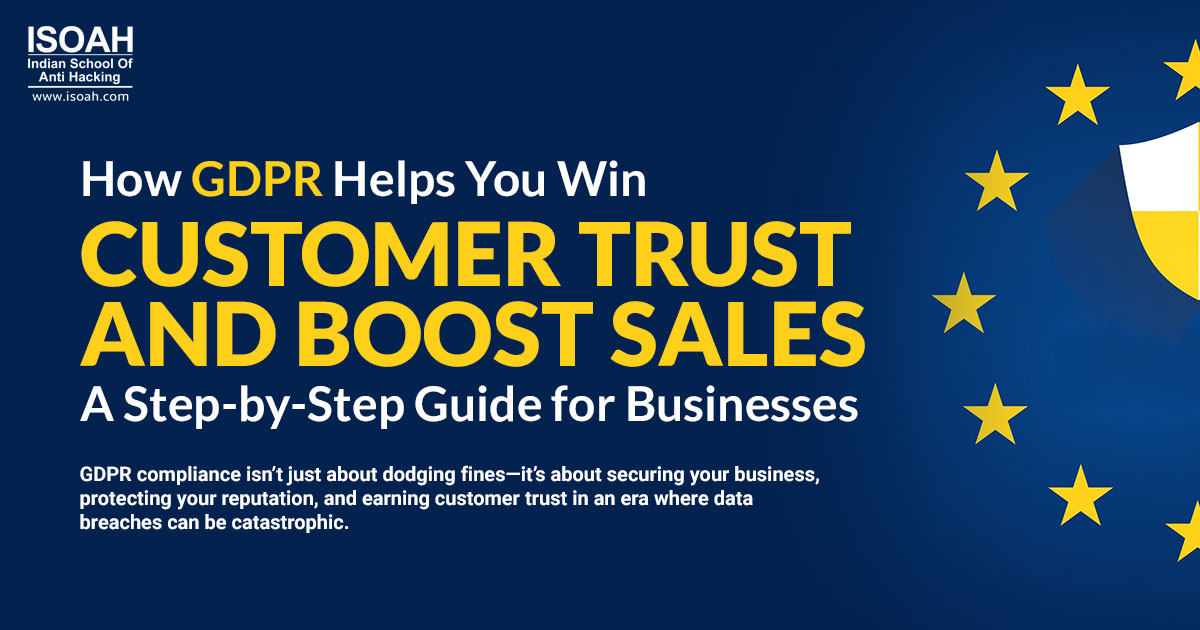
Introduction
Are you sure your business is GDPR compliant? If not, you could be at risk of massive fines, reputational damage, and customer distrust. The General Data Protection Regulation (GDPR) isn't just another legal formality; it's a serious framework designed to protect user data across the European Union (EU).
If your business collects, processes, or stores customer data—even if you're outside the EU—non-compliance can result in penalties as high as €20 million or 4% of your annual turnover. Ignoring GDPR is like playing with fire, and many businesses realize this only when it's too late. Many companies don't realize the risk until it's too late. Data breaches, legal troubles, and a damaged reputation can wipe out years of hard work in an instant. And here's the kicker - GDPR doesn't just apply to EU-based businesses. If you collect, store, or process customer data from the EU, you are legally bound to comply, no matter where your business is located.
The good news? It's not too late to fix this. This guide will walk you through the exact steps to achieve full GDPR compliance, protect your business from hefty fines, and build customer trust like never before.
In this guide, we'll walk you through the GDPR compliance framework, help you set up a GDPR compliant data processing service, and ensure that your business meets all legal requirements while building trust with customers.
Let's dive in!
What is GDPR and Why Does It Matter?
The General Data Protection Regulation (GDPR) is a data protection law enforced since May 25, 2018, to give EU citizens more control over their personal data. It applies to any business that collects or processes data from EU citizens, regardless of where the business is located.
In a simple term, it's all about identifying the types of personal data that your business collects. Like, customer names, IP Addresses, Email IDs, Payment Information. GDPR has its own principals. What are those? – i) Lawfulness, ii) Fairness, iii) Transparency, iv) Purpose Limitation, v) Data Minimization, vi) Accuracy, vii) Storage Limitation, viii) Integrity and Confidentiality, ix) Accountability.
| GDPR Principle | Description |
|---|---|
| Lawfulness, Fairness and Transparency | Personal data must be processed lawfully, fairly and transparently. Data subjects must understand how their data is used. |
| Purpose Limitation | Data must be collected for specified, explicit, and legitimate purposes and not further processed in an incompatible way. |
| Data Minimization | Only collect and process the data that is necessary for the intended purpose. |
| Accuracy | Personal data must be accurate and kept up to date, inaccurate data must be corrected or deleted. |
| Storage Limitation | Data should not be kept longer than necessary for the purposes it was collected. |
| Integrity and Confidentiality | Data must be processed securely to protect against unauthorized access, loss or destruction. |
| Accountability | Controllers must be able to demonstrate compliance with GDPR principles through documentation and measures. |
GDPR: Protect Your Business or Pay the Price!
Imagine waking up to a massive fine or losing hundreds of customers overnight—all because of a data privacy mistake. Sounds scary, right? That's exactly what GDPR (General Data Protection Regulation) is here to prevent.
Why Should YOU Care?
Because the world has changed. Customers now expect their data to be safe. One breach, one violation, and you could face:
- Hefty fines (up to €20 million or 4% of global revenue!)
- Loss of customer trust (once gone, it's hard to win back)
- Legal nightmares (lawsuits, investigations—who has time for that?)
Who MUST Be GDPR Compliant?
If your business falls into ANY of these categories, you can't afford to ignore GDPR:
- You operate in the EU
- You handle personal data of EU citizens (even if you're outside the EU)
- You run an e-commerce store, SaaS company, healthcare service, financial institution, or ANY online business collecting customer data
What's NEXT?
If you don't want your business to be the next data scandal headline, it's time to get compliant NOW. Your GDPR strategy starts today—because waiting could cost you big time.
Want to secure your business before it's too late? Keep reading.
If your business falls into any of these categories, keep reading—your compliance strategy starts now.
GDPR Compliance: What You MUST Do to Protect Your Business (Before It's Too Late!)
Failing to follow GDPR isn't just about fines—it's about trust, reputation, and survival. If you don't take action, you risk losing customers, lawsuits, and even getting banned from doing business in the EU. Here's how to stay ahead of the game:
1. Get Clear and Explicit Consent – No More Tricky Tactics!
You CANNOT collect customer data without their clear approval. If your website still has pre-checked boxes or sneaky opt-ins, you're at risk.
What to do NOW:
- Use simple language in consent forms (no confusing legal jargon!)
- Make opt-in a choice, not a trap
- Let users withdraw consent anytime—if they feel stuck, they'll leave for a competitor!
2. Appoint a Data Protection Officer (DPO) – If You Handle Sensitive Data
If you're collecting tons of sensitive data, you need a DPO to oversee compliance and prevent disasters. Ignoring this could mean serious legal trouble.
3. Honor Data Subject Rights – Because Users Are in Control
Customers today expect control over their personal data. If they don't trust you, they'll take their business elsewhere. Under GDPR, they have the right to:
- Access their data
- Fix incorrect details
- Delete their data (Right to be forgotten)
- Restrict processing
- Get a copy of their data in a portable format
4. Lock Down Your Data Processing – Or Risk a Breach Nightmare
Data security is non-negotiable. One leak and your brand could be permanently damaged.
How to protect your business:
- Use encryption (hackers love unprotected data!)
- Restrict access—only authorized staff should handle personal info
- Keep detailed records of every data-related activity
5. Conduct Regular GDPR Audits – Know Your Weak Spots Before Regulators Do
A GDPR violation can cost you millions. Don't wait for a regulator to point out your mistakes. Regular audits will help you:
- Know what data you're collecting
- Track where and how it's stored
- Identify who has access (and remove anyone who shouldn't!)
- Ensure third-party compliance (because their mistakes = your problem)
6. Verify That Your Third-Party Services Are GDPR Compliant
Using third-party tools like cloud storage, marketing software, or analytics? If they aren't GDPR-compliant, you're on the hook. Make sure every partner you work with follows GDPR, or you could face serious fines—even if it's not your fault!
7. Have a Data Breach Response Plan – Because Crises Happen
A data breach isn't just bad press—it's a business killer. Under GDPR, you must report breaches within 72 hours or face heavy penalties.
Your survival plan:
- Contain the breach immediately
- Notify affected users before they find out the hard way
- Put safeguards in place to prevent future attacks
Why You Can't Afford to Ignore GDPR Compliance?
- Massive Fines Can Crush Your Business– Non-compliance can cost you millions. Why risk everything when you can stay protected?
- Customers Won't Trust You Without It– People choose brands that keep their data safe. If you don't, they'll go to your competitor.
- Cyber Attacks Are Getting Worse– Hackers love weak security. GDPR compliance helps you lock them out before they ruin your business.
- Your Competitors Are Already Ahead– Privacy-focused companies attract more customers. If you're not compliant, you're losing out.
- One Lawsuit Can Shut You Down– Legal troubles and operational chaos can destroy your business. GDPR keeps you on the safe side.
GDPR Compliance Challenges That Could Cost You Big (And How to Fix Them Fast!)
Not staying GDPR compliant? That's like leaving your business unlocked for hackers, lawsuits, and reputation damage. Here's what's putting you at risk—and how to fix it before it's too late.
1. Your Team Doesn't Know the Rules (Until It's Too Late!)
- Risk: One mistake by an uninformed employee could land you in legal trouble.
- Fix: Regular staff training on GDPR best practices—because one wrong move can cost you millions.
2. GDPR Is Confusing (And That's a Problem!)
- Risk: The rules are complex, and misinterpretation can lead to fines.
- Fix: Follow a structured compliance framework and get legal help when needed—better safe than sorry.
3. Messy Consent & Data Requests (A Legal Nightmare!)
- Risk: Mishandling customer data can lead to penalties and lost trust.
- Fix: Automate consent management and use a data rights tool—so you're always audit-ready.
4. Your Vendors Could Be Your Weakest Link
- Risk: If your third-party providers aren't GDPR-compliant, you're on the hook!
- Fix: Only work with GDPR-compliant vendors and sign airtight data agreements.
5. A Data Breach Could Sink Your Business Overnight
- Risk: Cyberattacks and leaks can ruin your reputation and trigger heavy fines.
- Fix: Set up a fast-response security team and run regular security checks—because prevention is cheaper than damage control. GDPR Compliance Checklist: A Quick Recap
Is Your Business GDPR-Proof? Don't Risk Hefty Fines & Reputation Damage!
- Get clear consent – No consent? No business. Make it explicit & documented.
- Appoint a Data Protection Officer – If required, don't skip this step—it's a legal must!
- Respect user rights – Users can request, edit, or delete their data. Are you ready?
- Use GDPR-compliant services – Non-compliant tools can get you in trouble. Choose wisely!
- Run regular data audits – Avoid blind spots. Know what data you collect & why.
- Ensure third-party compliance – If your vendors slip up, you pay the price. Check them!
- Have a breach response plan – A breach can happen anytime. Be prepared to act fast.
- Train your team – One careless mistake can cost you millions. Educate every employee.
Conclusion
GDPR compliance isn't just about dodging fines—it's about securing your business, protecting your reputation, and earning customer trust in an era where data breaches can be catastrophic. Non-compliance isn't just a legal risk; it's a direct threat to your brand's credibility and long-term success.
Think about it: A single data mishap can cost you not only millions in fines but also the loyalty of your customers. Can your business afford that?
The good news? You don't have to navigate GDPR alone. Start today by auditing your data processes, training your team, and leveraging a GDPR-compliant data management system. Because in today's digital world, safeguarding data isn't an option—it's a competitive advantage!

